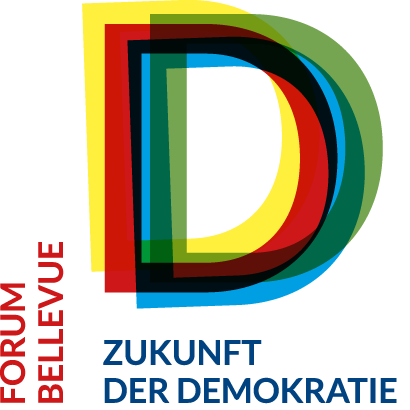"The European Union: What is at Stake"
14 May 2019
"Fateful choice," "endgame," or even "epochal"? A variety of superlatives were used by many commentators in the run-up to the European elections. But what was really at stake in the elections for the new European Parliament? This was the question posed by Federal President Frank-Walter Steinmeier in the seventh "Forum Bellevue on the Future of Democracy" titled "The European Union: What is at stake." Guests and students from all over Europe were invited to the discussion by the federal president.
"Even asking the question ‘what is at stake' shows what it is about: hard work and an important goal." The Federal President welcomed his guests to Berlin's Bellevue Palace with an opening statement underscoring the fact that there's a lot at stake in the European Union: "Our social model in global competition, joint responses to climate change, digital transformation and migration and, last but not least, our fundamental rights such as freedom and equality," said the Federal President. We must also consider the EU's weaknesses, because the essential question we need to pose about the future of the European Union is not "Are you for or against Europe?" but rather "What kind of policies do we want in and for the EU? This may – and indeed must – be a topic of impassioned debate," said Federal President Steinmeier.
To this end, the Federal President invited a panel of internationally renowned scholars with different research focuses to the podium: Ivan Krastev, Chair of the Centre for Liberal Strategies Sofia and co-founder of the European Council on Foreign Relations; Luuk van Middelaar, former advisor to the President of the European Council; Herman Van Rompuy and member of the Advisory Council on International Affairs of the Netherlands; Daniela Schwarzer, Director of the German Council on Foreign Relations, and Adam Tooze, Professor of History at Columbia University New York. The panelists were joined by an audience filled with students and committed youth from various European initiatives, funding projects and competitions.
Federal President Steinmeier: "The European Union may have looked into the abyss, but it did not jump."
The sheer complexity of the challenges faced by the EU as a result of the current state of affairs were made clear at the start of the debate: "Is the EU crisis now a thing of the past, or will it just gain traction after the European elections?" asked the Federal President of his panelists. Ivan Krastev, who had drawn a rather gloomy picture of Europe in his 2017 publication After Europe, was hesitant to make an unequivocal statement in this regard. He expressed concern about Europeans' anxiety about the future and their nostalgic longing for the past, which he has observed not only through surveys. "Europe was once the project of the future, but today, people look to the future with skepticism, and when Europe fears its future, this will prove difficult for the community project," said the political scientist.
But on the other hand, Krastev noted, Brexit has also triggered a new sense of unity within the EU and it has underscored its attractiveness. "Brexit may have brought Europe to look into the abyss, but it did not jump," the Federal President stated, noting that demands to leave the EU are currently unpopular, even among populists.
Greater or less sovereignty for Brussels?
Yet standard knee-jerk responses toward the European Union continue. The Federal President questioningly queried whether this marks a contradiction in our globalized world of growing challenges and questions and increasing need for cooperation. As an explanation, the panelists offered two main answers: First, according to Daniela Schwarzer, the EU has now reached a depth of integration in which every step further affects the fundamental sovereign rights of the member states. And this is not palatable to everyone. Second, many people associate the EU with the freedom of movement and therefore more globalization, remarked Adam Tooze. But many people would rather see the EU act as a protective shield against globalization.
Luuk van Middelaar stressed in this context the historical context of EU development: "The EU has long been a depoliticizing machine that works with technical rules for the internal market or uniform standards for services. But now, we're dealing with a Europeanization of politics," argued Middelaar. A traditional "politics of rules" alone is no longer sufficient in times of crisis when urgent matters have to be taken care of – instead, a "politics of events" is required. In the event of a financial or migration crisis, the EU must switch to a different policy mode that delivers more rapidly decisions and answers to people's pressing everyday questions, Tooze said.
Federal President Steinmeier: Hope and creative will rather than fear should determine the future of the EU
Whatever the worry or potential threat, the challenges of the future can only be met together, the Federal President stressed. The EU cannot rest on its laurels of the past if it is to inspire young people with enthusiasm for Europe and to convince them of the EU's importance to their future. It must show the way forward by delivering a policy that inspires people to meet the future with courage. Future European policy should therefore under be marked in any way by a fear of crises or populism. "Hope and the will to shape Europe's future should be the driving force," said Federal President Steinmeier as the discussion came to a close. "Because losing Europe would be the worst thing that could happen to us," said Liz Mohn, co-initiator of the series of events with the "Forum Bellevue on the Future of Democracy". "We must therefore ensure that we are united with our neighbors."
The speech of the Federal President for the event can be downloaded here. (pdf).

